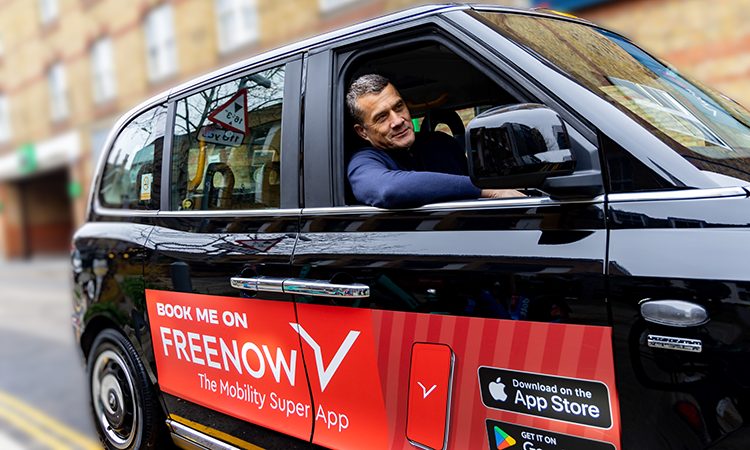The Knowledge of London: How adapting the Knowledge can save the taxi industry
- Like
- Digg
- Del
- Tumblr
- VKontakte
- Buffer
- Love This
- Odnoklassniki
- Meneame
- Blogger
- Amazon
- Yahoo Mail
- Gmail
- AOL
- Newsvine
- HackerNews
- Evernote
- MySpace
- Mail.ru
- Viadeo
- Line
- Comments
- Yummly
- SMS
- Viber
- Telegram
- Subscribe
- Skype
- Facebook Messenger
- Kakao
- LiveJournal
- Yammer
- Edgar
- Fintel
- Mix
- Instapaper
- Copy Link
Posted: 5 September 2023 | Mariusz Zabrocki - FREENOW | No comments yet
For Intelligent Transport, Mariusz Zabrocki, UK General Manager at FREENOW, discusses the urgent need for a comprehensive review and modernisation of the Knowledge of London to ensure the long-term viability and vitality of the iconic black cab industry in the UK’s capital.


The Knowledge of London – the intensive training and exam required of black cab drivers in the English capital – has faced intense scrutiny in recent months.
Introduced in 1865, the Knowledge requires taxi drivers to memorise thousands of roads and routes within a six-mile radius of Charing Cross, including a range of popular destinations from hospitals and nightclubs to monuments and theatres. Yet, despite its longevity, it has been reported that the Knowledge is at risk of going ‘extinct’.
In order to ensure the future of the taxi industry, the Knowledge of London needs to be revised to reflect the new generation of drivers”
With many taking up to four years to complete the exam, drivers have complained about how time-consuming, expensive and inaccessible the test is. The Mayor of London has recently revealed that 70% of drivers do not complete the Knowledge testing process1.
The impact that this is having on the taxi industry cannot be understated. Recruitment is drying up, leaving drivers and passengers to choose alternatives to travel around. In order to ensure the future of the taxi industry, the Knowledge of London needs to be revised to reflect the new generation of drivers, the ever-changing London landscape, as well as the travel needs of Londoners and its millions of visitors.
The popularity of the Hackney carriage has not waned
According to data from FREENOW, there’s been an increase in the number of [black cab] journeys in boroughs such as Islington, Camden, City of London and Westminster”
The Hackney carriage, London’s iconic black cab, has been around for 200 years and is an increasingly popular mode of transport. According to data from FREENOW, there’s been an increase in the number of journeys in boroughs such as Islington, Camden, City of London and Westminster.
Taxis offer an accessible transport option for all people in London and work alongside public transport, such as buses or the London Underground (the Tube), to provide travel to all corners of the capital. The benefits that they have for passengers – including comfort and space, the ability to use bus lanes and the large zero-emission-capable fleet – make them a leading option amongst residents and tourists alike.
But the low number of drivers completing the Knowledge is becoming an issue
However, the popularity of the black cab is hindered by the low number of new drivers that are joining the industry. Recruitment is becoming a major obstacle to the taxi trade, and the Knowledge is one of the main barriers.
Recruitment is becoming a major obstacle to the taxi trade, and the Knowledge is one of the main barriers”
In the last decade, the number of London black cab licences has dwindled by over 95%, with new applications for licences falling from 3,484 in 2011-12 to 158 in 2022. This is amplified as existing drivers leave the trade. Data from the taxi and private hire vehicle statistics2 shows that the average age of a driver is 51 years old, while one in five are over 60. As more black cab drivers retire, the industry will certainly feel the need to acquire new talent.
With the popularity of the black cab on the rise, lower recruitment poses a major issue for the industry, consumers and existing drivers. The new generation of passengers are tech savvy and used to getting everything they need with the tap of a button. The inability to find a cab may lead them to find and stick with alternatives. Eventually, this will lead to lower demand for existing drivers.


Credit: FREENOW
Modernising the Knowledge
The test was introduced at a time when London’s streets and the needs of passengers were vastly different, and navigation apps weren’t available”
The Knowledge is something that all black cab drivers are proud of and, subsequently, we do not want it to be scrapped or oversimplified. However, the test was introduced at a time when London’s streets and the needs of passengers were vastly different, and navigation apps weren’t available. The changes that need to be made would simply reflect this new reality.
This would include halving the radius to three miles from Charing Cross and shortening the amount of time it takes to one to two years. The use of Sat Navs, especially in the outer parts of the city, should also be considered as a way of complimenting the Knowledge.
Helping the industry to thrive
While the immense knowledge which black cab drivers possess is part of their charm, and what makes them so popular, the difficulty of the Knowledge of London is deterring potential new drivers.
In order to ensure that the taxi industry can continue to thrive for the next 200 years, a review of the Knowledge of London should be made a priority”
Existing drivers have spoken about the great benefits and prestige of being a taxi driver. It provides them with a good income and flexibility, and many thoroughly enjoy meeting new and interesting people on their daily travels.
However, the benefits of the role are vastly outweighed by the stress and cost of completing the Knowledge. In order to ensure that the taxi industry can continue to thrive for the next 200 years, a review of the Knowledge of London should be made a priority.
References
- https://www.taxi-point.co.uk/post/making-the-knowledge-of-london-easier-will-impact-taxi-tariffs-for-drivers-warns-ucg-rep#:~:text=Tens%20of%20thousands%20of%20road,Mayor%20of%20London%20recently%20revealed
- https://www.gov.uk/government/statistics/taxi-and-private-hire-vehicle-statistics-england-2023/taxi-and-private-hire-vehicle-statistics-england-2023#taxi-and-phv-passengers


Mariusz has also successfully steered the company from record lows caused by the global pandemic, which severely affected the ride-hailing industry, to record highs. FREENOW’s UK business is outperforming pre-pandemic records and is currently the licenced taxi market leader in the UK and across Europe.
Related topics
Mobility Services, Passenger Experience, Staff & Skills Development, Workplace
Related modes
Taxi
Related cities
London
Related countries
United Kingdom
Related organisations
FREE NOW
Related people
Mariusz Zabrocki








